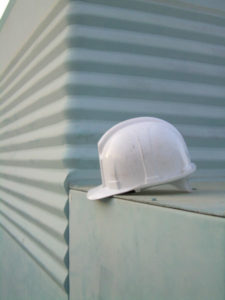New Jersey municipalities may need to amend their local ordinances in light of recent changes made to the state’s Municipal Land Use Law (MLUL). The new law signed in January, P.L. 2017 C. 312, restricts when a municipality can require performance and maintenance guarantees from a developer. 
Limits on Performance Guarantees
Performance and maintenance guarantees are designed to ensure that improvements required to be made by a developer are completed and maintained. However, the recent amendments to the MLUL restrict a municipality’s ability to require developers to post performance guarantees. Now, municipalities may only require developers to post performance guarantees that cover improvements being dedicated to a public entity, with an exception for privately-owned perimeter buffer landscaping.
Moreover, P.L. 2017 C. 312 specifically eliminates the following types of improvements that previously requireda performance guarantee: culverts, storm sewers, erosion control and sedimentation control devices, and certain other on-site improvements and landscaping. However, the Soil Erosion and Sedimentary Control Act still authorizes certain municipalities to require performance guarantees for erosion control and sedimentation control devices.
New Guarantees Under P.L. 2017 C. 312
In addition, the new law authorizes municipalities to require two new types of guarantees.
First, if a developer seeks a temporary certificate of occupancy for a development, unit, lot, building, or phase of development, a municipality may require the developer to furnish a “temporary certificate of occupancy guarantee” in favor of the municipality. The temporary certificate of occupancy guarantee is a guarantee in an amount equal to 120 percent of the cost of installation of the remaining improvements not covered by an existing performance guarantee that are required to be completed prior to the issuance of the permanent certificate of occupancy. Since the new temporary certificate of occupancy guarantee adequately ensures completion of the improvements, all sums remaining under an existing performance guarantee will be released.
Second, P.L. 2017 C. 312 alsoauthorizes a municipality to require a developer to furnish a “safety and stabilization guarantee,” which will provide the municipality a source of funding to return property to a safe and stable condition or to implement measures to protect the public from access to an unsafe or unstable condition. A municipality can claim payment under this guarantee if a developer ceases all work on the development for at least 60 consecutive days after a site disturbance has commenced and the developer does not recommence work within 30 days after the municipality notifies the developer of the municipality’s intent to claim payment under the guarantee.
Additional Changes to Performance and Maintenance Guarantees
Further, the new law amends provisions of the MLUL that control the posting of maintenance guarantees. Municipalities may only require a developer to provide a maintenance guarantee not to exceed 15 percent of the cost of installation for both public improvements that were the subject of a performance guarantee and specific private stormwater management improvements. Moreover, maintenance guarantees cannot exceed a term of two years, and maintenance guarantees will now automatically expire at the end of the term.
For more information about P.L. 2017 C. 312or the legal issues involved, we encourage you to contact a member of Scarinci Hollenbeck’s Government Law Group.
